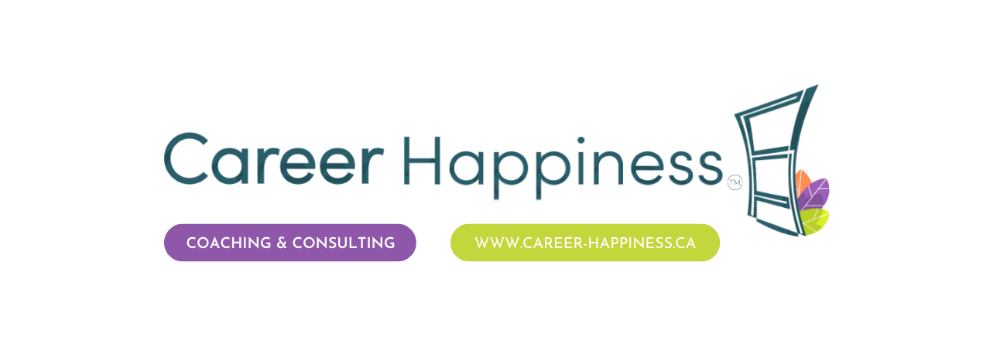Betting on Yourself: Top Concerns And Solutions When Charting A New Career Path
Sep 29, 2025
At some point in your career, you might find yourself wondering: Is this really where I want to be?
It’s a question many mid- and senior-level professionals face. Especially when you’ve reached a place of comfort in terms of salary and status, but you still feel unfulfilled.
The thought of transitioning to a new career path can be intimidating.
But the courage to bet on yourself is the key to having a more fulfilling professional life.
Let’s take a closer look at some concerns you might have throughout the process — and some solutions you can implement. We’ll also go over how a career coach can help.
Top concerns for mid-and senior-level professionals considering a new career path
Here are some roadblocks you might be facing right now:
Concern #1: Is it too late to make a change?
The idea of starting over may seem daunting.
Many professionals fear that it’s just too late to make a switch. Or that doing so would mean accepting a demotion and starting from the bottom.
But the truth is, career transitions are possible at any time.
It’s also important to remember that accepting a temporary setback in title or salary doesn’t define your future. It’s a transition period, not a permanent state. More importantly, this is a choice you’re making to pursue a career that makes you happy and fulfilled, rather than staying in one that feels like a trap.
Think of it as an investment in yourself — while there may be an initial adjustment, the long-term rewards of finding a career that aligns with your goals and passions far outweigh the short-term sacrifices.
Concern #2: Fear of losing everything you’ve built
Another major challenge for professionals is the belief that starting a new career path means throwing away everything they’ve learned so far. It’s easy to assume that transitioning to a new role or industry requires starting from scratch.
The good news is you’ve spent years developing transferable skills that are valuable across multiple industries.
The key is to identify these skills and understand how you can apply them in your new career. (Hint: A career coach can help with that.)
Leadership, communication, analytical skills, problem-solving, and project management, for example, are just a few skills you can build on.
Instead of seeing this change as “starting over,” think of it as building on a strong foundation. The experience you’ve gained so far will be your advantage as you explore new opportunities.
Concern #3: Financial setbacks during a career transition
Money is also a major consideration for professionals contemplating a career change.
You’ve likely achieved a certain level of financial stability, and the fear of taking a pay cut can be overwhelming. Transitioning into a new career may mean temporarily sacrificing a high salary or prestigious job title, but it’s crucial to weigh that against your long-term fulfillment and happiness.
Clarify your priorities around money and explore whether a temporary reduction in income is worth it if it leads to greater satisfaction. Consider how a job title change might affect you emotionally and practically.
In the long run, aligning your work with your passions may open doors to even greater financial rewards as you pursue a career that energizes and motivates you.
Concern #4: Feeling inexperienced in a new field
Transitioning out of a long-standing career path into a new industry means stepping into the unknown.
Many professionals fear they lack the experience to succeed in a new role, which can zap their confidence.
That’s why it’s important to focus on what you already bring to the table. Think about your overall strengths and skills, even if they’re from a different field. Many of these can be valuable in your new path.
Coming in with fresh eyes also gives you the chance to lean into your objective perspective.
This means you may have ideas and see opportunities that employees who’ve been in the industry for years may not. This also keeps companies innovative — which is one of the reasons they hire candidates without direct experience.
Concern #5: Keeping up with an evolving job market
The modern job market is evolving rapidly, with automation and technology making some roles obsolete. This leaves many professionals afraid of being left behind, especially if your current skill set doesn’t align with the demands of your desired new field.
That’s why it’s important to evaluate the skills you already have and identify areas for growth.
Whether that’s reskilling, upgrading your existing knowledge, or learning something entirely new, the goal is to help you stay competitive in the job market.
By addressing these gaps early, you can prepare yourself for a successful transition and remain relevant in your new career.
How personalized career coaching can help you transition to a new role…?

If you’re feeling stuck, working with an experienced career coach is a fantastic way to gain clarity and put together an action plan.
A career coach can help you:
1. Align your goals with your values and they show up for you.
Learn what’s important to you in a company’s culture and how to assess if a company’s values align with your own.
Your coach will also help you create a job search strategy that supports your professional growth and personal priorities — so your next role is fulfilling on all levels.
2. Overcome mental roadblocks and reignite motivation
Years in the same role can dampen excitement and motivation.
Coaching addresses mental roadblocks like frustration or fear of failure, so you can rediscover your passion and enthusiasm for a new career path. With personalized sessions, you’ll prepare to embrace new opportunities with renewed energy.
3. Create a strategic career plan and expand your network
Transitioning to a new career requires a strategic approach. You’ll learn how to build new connections in your target industry, gain new skills, and create a structured plan for a smooth transition.
4. Build confidence in a volatile market
In a fluctuating job market, confidence in your abilities helps you present yourself as a qualified candidate. Coaching helps you build resilience and strength so you can believe in your potential despite market uncertainties.
By the end, you’ll have a strong sense of your capabilities and how to succeed in any market condition.
Wrap up
Betting on yourself is more than just taking risks — it’s about trusting in your abilities and your experience. Yes, change can be daunting, but with the right mindset and guidance, you can design a new career path that aligns with your values and long-term goals.
Remember, you’re not starting from scratch. You’re building on years of valuable experience.
The courage to bet on yourself may just be the most important investment you ever make, and the best is yet to come.
PS: Need personalized support? My background offers 20+ years of HR expertise and insights into the public and private sectors. Book a free discovery call now to learn more.
To your success!


